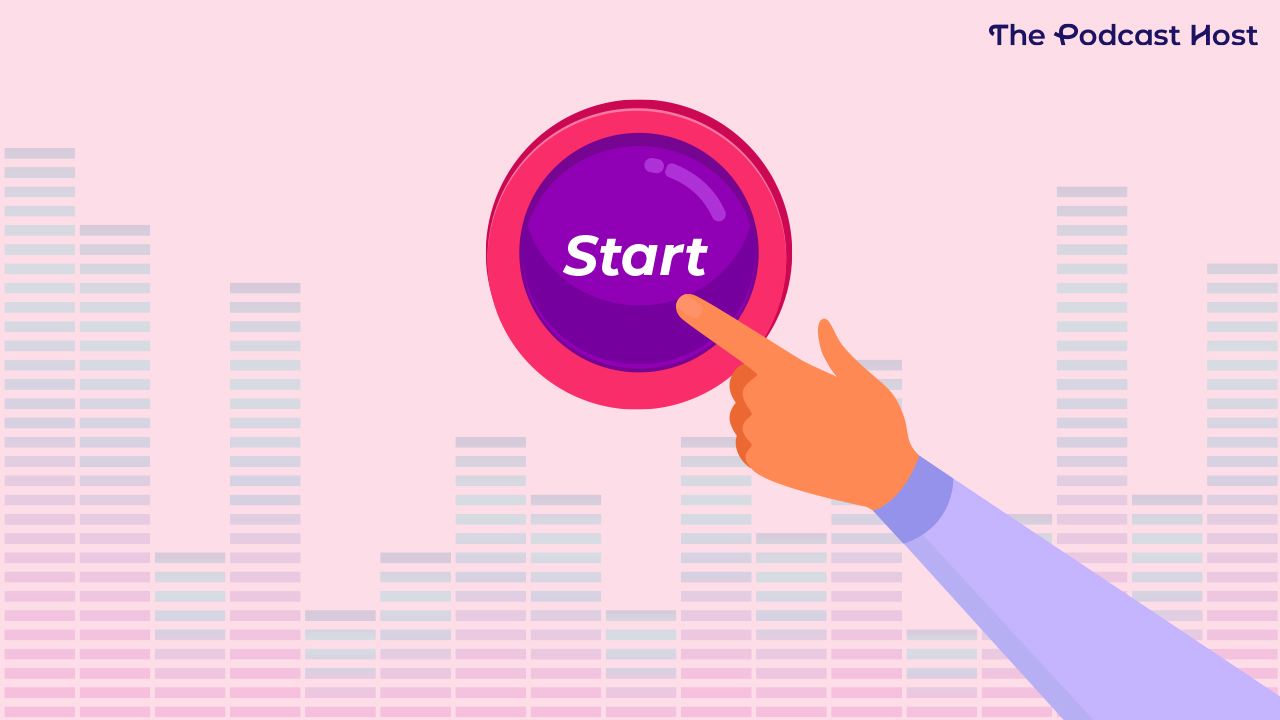When Did Podcasts Start? A Brief History of Podcasting

In February of 2004, journalist Ben Hammersley wrote for The Guardian that “an audible revolution” was in full swing. Is that when podcasting started? Nope. Of the treasure trove of data about the history of podcasting, some bits complement each other, and others conflict. Like the camera, radio communication, and television, podcasting is a child with many parents. It may also have many birthdays. Let’s look at when podcasting started and why, so we can better understand what to do with podcasting in the future.
When Did People Start Listening to Podcasts?
Most people became aware of podcasts around 2005. Then, iTunes 4.9 made it easier for people to subscribe to podcasts. At the time, podcasts and music used the same app, so you could make playlists containing both. Apple’s iPod hit consumer shelves in October 2001, but it wasn’t unique. People still used various kinds of mp3 players to download and share audio. But, none of the other players had Apple’s PR muscle.
Despite inventing the iPod, though, Apple didn’t invent the podcast. So, when did podcasting start?
When Did People Start Podcasting?
Much of the history of podcasting overlaps with music sharing.
In the US, after the mid-90s, it was nearly impossible for independent artists to reach audiences. Worse, people could barely find any music or audio programming outside the Top 40. The Telecommunications Act of 1996 was meant to keep radio stations profitable. Unfortunately, it meant that large corporations like Clear Channel (now iHeart Media) could buy more than one radio or television station in the same geographic market. This was a blow to local news, information coverage, and program variety.
As the 21st century rolled in, creative folks needed the Internet so badly they had to jury-rig it. Many people burned the midnight oil to make communication faster, cheaper, and more efficient. Even if they didn’t particularly care for Midnight Oil. People tend to focus on how to share music easily because music is high in demand for emotional reasons. Podcasting follows the same trail.
The Slow Internet File-Sharing Conundrum
In the early years of the iPod, devices didn’t connect to the Internet with wi-fi or Bluetooth. Typically, you’d transfer audio files from a CD, convert them to an mp3, and put them in your computer’s library. Or, you could buy tracks on iTunes if you weren’t downloading them from Napster. Then, you’d plug your listening device into your computer and slowly send them along. It was time-consuming and required attention to detail.
If a friend wanted to share their audio or video with you over the Internet, that could take even longer. In the early 2000s, the majority of people in the US had dial-up internet, and it was slow. For one three-minute pop song, this wasn’t all that big of a deal. But if you wanted to share more than one file, it added up. What if you wanted to share a file that’s bigger than a song?
Music Sharing, Blogging, and Podcasting
Again, podcasting didn’t explode from any one person’s head, fully formed, like Athena’s birth from Zeus’ melon.
Adam Curry (of The Podcast Index) prioritized music, radio, and sharing them as efficiently as possible. He told me, “Karlheinz Brandenburg or whoever holds the patent on the mp3 needs to be kissed and hugged,” for their contribution to efficient audio sharing. Curry studied Apple Script and worked with developer Kevin Marks to create iPodder. This program made it easier to consume and share audio on your iPod via RSS feeds. One could say that this is when podcasting started.
Prior to that, Dave Winer and Adam Curry partnered to popularize the idea of sharing music via RSS. Curry said that he was living in the Netherlands at the time. With the nine-hour time difference, Winer could send him a QuickTime file and the next morning, when Curry woke up, it would be there on his computer.
Three RSS Guys Walk Into a Deli and Say, “Can We Get This To Go?”
In October of 2000, entrepreneur Tristan Louis proposed an idea to Winer to share audio more efficiently via RSS. Louis later wrote, “Later that month, Dave Winer, who was steering efforts around RSS, organized a dinner at Katz’s Deli in New York, so I went to plead my case. There, I found out that Adam Curry seemed to want to solve a similar problem on his end. So we talked more about this, and Dave took all that input and turned it into something useful.”
Curry already had ideas about efficient file sharing, plus he had the drive, emotional attachment, and connections to promote it. Louis had the details of the concept. Winer was the RSS expert of the three. He proposed sharing audio or video as a single “attachment” tag inside an enclosure, like a letter in an envelope. Or, better yet, like peas in a pod.

So there you have it. Podcasts started in October 2000. In fact, if we really want to have fun with this, say it’s October 30, 2000. That’s the anniversary of the War of the Worlds broadcast.
Why Would Anyone Want to Start Podcasting?
From 1989-1990, a Russian samizdat radio program, The Illusion of Independent Radio, shared music, interviews, and panel discussions with an underground network of subscribers. Recording the show on reel-to-reel tape, journalists Galina Pilipenko and Valery Posidelov were able to make four episodes. Magnetic tape can’t resist time as well as humans resist censorship. But, you can find some of the recordings on YouTube.
Some say Russia’s first podcast is The Illusion of Independent Radio. The show packages audio in enclosures and distributes it via a network. You could say the same thing for Girl Scout cookies, though.
In Ben Hammersley’s (aforementioned) 2004 article for the Guardian, he spoke with journalist Christopher Lydon, reporting from the Iowa Caucus. Lydon recorded news about the earliest stages of the 2004 Presidential election and posted them to his website. His analysis and opinions went directly to his audience, without an editor or publisher as an intermediary.
Since then, every aspect of podcasting has become easier. Any podcaster’s RSS feed can send episodes around the world, update a website, or feed an AI that can describe the podcast in minutes. In the past twenty years, it’s become easier to make a podcast than it is to vote in some places.
What would you like to do with this opportunity?
